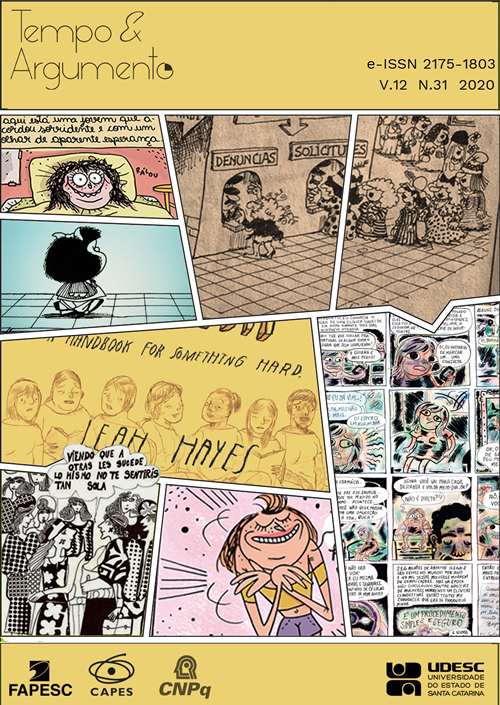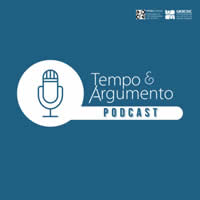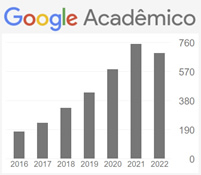Marie Marcks: a visualidade do político e o Feminismo ilustrado na Alemanha (1963 - 2014)
DOI:
https://doi.org/10.5965/2175180312312020e0104Resumo
Lutas políticas e sociais têm visualidade. Para além do cerimonial que, por vezes, envolve a política, toda ação que se desenvolve no campo do político é, também, uma questão visual. Charges e cartuns, partes inerentes e destacadas da imprensa escrita, revelam-se também, dessa forma, ações comunicativas visuais, e são percebidas como uma ação política específica, com importância e efeito no campo público, político e social da aparência (Arendt). Elas se tornam documentos de sua época e de um determinado grupo político-social e se mostram, elas mesmas, na forma de representação, atuantes nesse espaço do político. É considerando essas características das charges que o presente artigo levanta as charges da desenhista alemã Marie Marcks, considerada uma das principais vozes do feminismo alemão. Atuante a partir da década de 1960, seus desenhos, com enorme aceitação e entrada na grande mídia, abordam temas caros ao feminismo de forma direta, mesmo em tempos ainda resistentes a eles. Dividido em três partes, o artigo explora, em primeiro lugar, a conceitualização do campo público/político e sua visualidade, caracterizando o espaço no qual transitam as charges e sua especificidade. Segue-se uma breve biografia de Marie Marcks e a caracterização da conjuntura de sua atuação para, em seguida, baseando-se no método documentário de análise de imagens, efetuar uma análise de algumas de suas obras mais representativas, dando conta, assim, do aspecto historiográfico e técnico da atuação de Marcks.
Palavras-chave: Marie Marcks. Charges. Opinião pública. Política. Feminismo.
Downloads
Referências
ANDERSON, Benedict. Imagined communities. London: Verso, 2006.
ANSART, Pierre. Ideologia, conflito e poder. Rio de Janeiro: Zahar, 1978.
ARENDT, Hannah. Origens do totalitarismo. São Paulo: Cia das Letras, 1999.
ARENDT, Hannah. A condição humana. Rio de Janeiro: Forense Universitária, 2005.
ARENDT, Hannah. A vida do espírito. Rio de Janeiro: Civilização Brasileira, 2012.
BERGSON, Henri. O riso. São Paulo: Martins Fontes, 2001.
BOHNSACK, Ralf. A Interpretação de imagens e o método documentário. Sociologias, Porto Alegre, n. 18, v. 9, p. 286-311, jun./dez. 2007.
BOHNSACK, Ralf. Qualitative bild- und videointerpretation. Opladen: Budrich, 2009.
EICKHOFF, Katharina. Ich war immer eine politische karikaturistin. SWR2 Kulturgespräch, [S.l.], 09 ago. 2012. Disponível em: https://www.swr.de/swr2/kultur-info/marie-marcks-zum-90-geburtstag/-/id=9597116/did=10160026/nid=9597116/ 1q2zbz6/index.html. Acesso em: 30 dez. 2019.
OLYMPIA 1936 war mein größtes Abenteuer. Frankfurter Allgemeine Zeitung. Frankfurt am Main, 13 set. 2013. Disponível em: https://www.faz.net/aktuell/feuilleton/bilder-und-zeiten/fragen-an-zwei-generationen-olympia-1936-war-mein-groesstes-abenteuer-12572588.html. Acesso em: 04 jan. 2020. Feuilleton. Fragen an zwei Generationen.
FREVERT, Ute. Women in german history. Oxford: Berg, 1997.
GREER, Germaine. A mulher eunuco. Rio de Janeiro: Artenova, 1971.
KLAUS, Elisabeth; WISCHERMANN, Ulla. Journalistinnen: eine geschichte in biographien und texten (1848-1990). Wien: LIT, 2013.
LIEBEL, Vinicius. A análise de charges segundo o método documentário. In: WELLER, Wivian; PFAFF, Nicolle (org.). Metodologias da pesquisa qualitativa em educação. Petrópolis: Vozes, 2010. p. 182-196.
LIEBEL, Vinicius. Entre Sentidos e Interpretações: apontamentos sobre a análise documentária de imagens. ETD – Educação Temática Digital, v. 12, p. 172-189, 2011.
LIEBEL, Vinicius. O historiador e o trato com as fontes pictóricas. Topoi, Rio de Janeiro, v. 17, n. 33, p. 372-398, 2016.
LOWER, Wendy. As mulheres do nazismo. Rio de Janeiro: Rocco, 2014.
MARCKS, Marie. Ich war immer eine politische karikaturistin: ausstellung im Frankfurter Caricatura-Museum über ihr Lebenswerk eröffnet. [Entrevista cedida a] Katharina Eickhoff. SWR2 Kultur, Baden-Baden, 09 ago. 2012. Disponível em: https://www.swr.de/swr2/kultur-info/marie-marcks-zum-90-geburtstag//id=9597116/did=10160026/nid=9597116/1q2zbz6/ index.html. Acesso em: 09 jan. 2020.
MOUFFE, Chantall. Agonistique: penser politiquement le monde. Paris: Ed. Des Beaux-Arts, 2014.
MOUFFE, Chantall. Sobre o político. São Paulo: Martins Fontes, 2016.
MUCHEMBLED, Robert. Insoumises: – une autre histoire des françaises. Paris: Autrement, 2013.
PRZYBORSKI, Aglaja. Bildkommunikation: qualitative bild- und medienforschung. Berlin: De Gruyter, 2017.
RANCIÈRE, Jacques. Le partage du sensible. Paris: La Fabrique, 2000.
SCHMITT, Carl. O conceito do político / teoria do partisan. Belo Horizonte: Del Rey, 2008.
SCHRÖDER, Jens. Historische analyse: Spiegel und Stern im 66-Jahre-Auflagentrend. Meedia, München, 12 fev. 2016. Disponível em: https://meedia.de/2016/02/12/historische-analyse-spiegel-und-stern-im-66-jahre-auflagentrend-rekorde-mit-kennedy-und-dem-irak-krieg/. Acesso em: 08 jan. 2020.
SJÖHOLM, Cecilia. Doing aesthetics with Hannah Arendt. New York: Columbia Univ. Press, 2015.
STATEN, Henry. Wittgenstein and Derrida. Lincoln and London: Univ. of Nebraska Press, 1984.
Downloads
Publicado
Como Citar
Edição
Seção
Licença
Copyright (c) 2020 Revista Tempo e Argumento

Este trabalho está licenciado sob uma licença Creative Commons Attribution-NonCommercial 4.0 International License.
Os artigos cujos autores são identificados representam a expressão do ponto de vista de seus autores e não a posição oficial da Tempo e Argumento.





